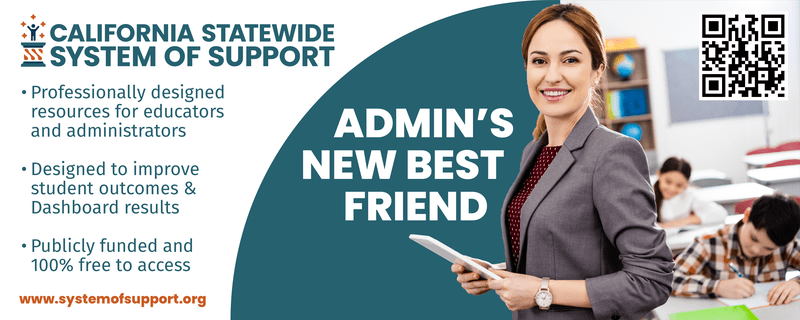Educator assignment dashboards coming soon
January 13, 2025
The December meeting of the California Commission on Teacher Credentialing was attended by ACSA CTC Liaison Doug Gephart, who+filed the following report.
The California Commission on Teacher Credentialing will soon unveil new educator workforce data dashboards describing educator assignments in California.
The CTC has historically overseen statewide monitoring of certificated assignment data by California Statewide Assignment Accountability System (CalSAAS) to ensure educators are appropriately assigned for their positions. As most educators know, California is currently experiencing a teacher shortage and misassignments and vacancies occur more frequently due to external staffing pressures. There are various ways to legally assign an underprepared educator to a classroom and not incur a misassignment: Preliminary Credential, Local Assignment Option, Limited Assignment, Short Term Waiver, Intern Misassignment, Corrected Misassignment, Emergency Permit and Waiver.
The commission developed the new dashboards to fulfill a statutory mandate and to ensure that they are supportive in forming California’s policies impacting the education workforce. These dashboards reflect “fully prepared” and “underprepared” educator assignments, wherein assignment with a “fully prepared” educator means the individual has completed teacher preparation for the 1) setting, 2) subject, and 3) student population served, and “underprepared” means the individual has not completed teacher preparation in at least one of those three areas.
Aligning dashboard data between the CTC and California Department of Education will, for the first time, bring educator workforce data into significant alignment with the data presented by other state educational agencies. The new educator workforce dashboards provide new insight into the state’s educator workforce, and will serve as a valuable tool for LEAs, policy makers and advocates to assess the state of the teacher workforce.
Field testing edTPA handbooks
The edTPA is a subject-specific performance assessment that evaluates a common set of teaching principles and teaching behaviors as well as pedagogical strategies that are focused on specific content learning outcomes for P-12 students (birth-21 in special education settings). The assessment systematically examines a cycle of teaching aimed at subject-specific student learning goals captured by the three tasks that compose an edTPA portfolio: planning, instruction and assessment.
Field testing the content of edTPA handbooks is intended to meet the requirements in Senate Bill 488 with the intent of serving as a replacement for the currently adopted Reading Instruction Competence Assessment (RICA). Evaluation Systems of Pearson plans to field test the edTPA Multiple Subject, Literacy with Mathematics, and edTPA Education Specialist, Literacy in winter/spring 2025 with Multiple Subject and Education Specialist candidates, respectively.
All candidates for a Preliminary Multiple or Single Subject Teaching Credential are required to pass an assessment of their teaching performance with TK-12 public school students as part of the requirements for earning a preliminary teaching credential. The teaching performance assessment must be approved by the commission and meet its current Performance Assessment Design Standards (PADS).
Staff recommended and the commission approved the following:
- Approve the edTPA Multiple Subject, Literacy with Mathematics and edTPA Education Specialist, Literacy: MMSN/ESN field tests as proposed for fall 2024 and spring 2025.
- Approve waiver requests for the Reading Instruction Competence Assessment requirement for candidates who successfully complete the edTPA Multiple Subject, Literacy with Mathematics or the edTPA Education Specialist, Literacy: MMSN/ESN assessments; and to allow this assessment as evidence the candidates have also met the TPA requirement.
- Adopt a minimum passing standard for the edTPA Multiple Subject, Literacy with Mathematics field test.
- Adopt a minimum passing standard for the edTPA Education Specialist, Literacy: MMSN/ESN field test.
Update on Statewide Residency Technical Assistance Center
The California state budget signed by Gov. Gavin Newsom in July 2022 included $20 million in funding for a competitive grant to create a statewide technical assistance center for teacher and school counselor residency programs. In August 2023, the commission awarded the grant to Santa Clara County Office of Education to operate the Statewide Residency Technical Assistance Center (SRTAC) who in turn partnered with Humboldt, Sacramento, San Diego and Tulare county offices of education to establish regional hubs. Collectively, these five regional hubs collaborated to develop a localized system of support to serve the state.
In accordance with the provisions of the legislation, the technical assistance offered includes, but not be limited to, the following:
- Information to the field regarding the benefits of establishing residency programs to teacher candidates, local educational agencies and teacher preparation programs.
- Best practices in recruitment of diverse residents representing the diversity of the state’s pupil population.
- Minimizing cost burden to residents, including leveraging Golden State Teacher Grant Program funding.
- Best practices in partnership and administration of residency programs between local educational agencies and teacher preparation programs.
- Scaling up and sustaining residency programs.
Additionally, they worked with each regional hub county office to hire staff dedicated to the operation of the center, develop memorandums of understanding, and design the plan to communicate with LEAs across the state.
As the program enters its second year of operation, the work from year 1 will continue while layering technical assistance to teacher and school counselor residency programs to include topics such as:
- Attracting and retaining diverse cohorts of residents reflective of the communities served.
- Making preparation programs affordable for candidates.
- Becoming sustainable and independent of grant funds or other one-time funding.
- Designing a clinically rich, high-retention preparation route.
- Supporting resident learning through well-prepared and culturally responsive mentors.
Other business
In other business during the December CTC meeting:
- The commission was presented with the Annual Report of the Committee On Accreditation, which provides an update on all activities undertaken by staff and the COA in 2023-24 to implement the accreditation system. In the 2023-24 academic year, a total of 35 institutions had various types of site visits which included 32 accreditation site visits, one provisional site visit, and two revisits.





